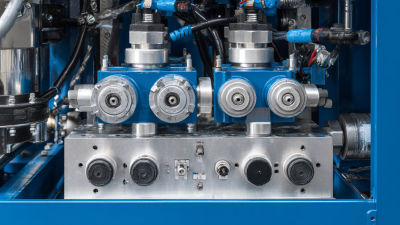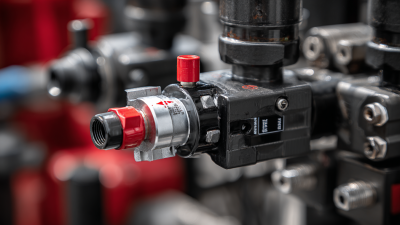- Home
- A-Z Catalogue
- Products
- Valves
- Cetop
- Manual Directional Valves
- Proportional Valves
- Poppet Valves
- High-Speed Linear Servo Valves
- All High-Speed Linear Servo Valves
- Cetop 10 (NG32) Two Stage Type High Speed Linear Servo Valves – LSVHG-10
- Cetop 10 (NG32) Two Stage Type High Speed Linear Servo Valves – LSVHG-10 (With Fail-Safe)
- Cetop 8 (NG25) Two Stage Type High Speed Linear Servo Valves – LSVHG-06
- Cetop 8 (NG25) Two Stage Type High Speed Linear Servo Valves – LSVHG-06 (With Fail-Safe)
- Cetop 7 (NG16) Two Stage Type High Speed Linear Servo Valves – LSVHG-04
- Cetop 7 (NG16) Two Stage Type High Speed Linear Servo Valves – LSVHG-04 (With Fail-Safe)
- Cetop 5 (NG10) Direct Type High Speed Linear Servo Valves – LSVG-03
- Cetop 5 (NG10) OBE Type Direct Operated Linear Servo Valves – LSVG-03-EH
- Cetop 3 (NG6) OBE Type Direct Operated Linear Servo Valves – LSVG-01-EH
- Pumps
- Pressure control
- Flow Control Valves
- Pressure Control Valves
- All Pressure Control Valves
- Brake Valves
- Direct Relief Valve
- Low Noise Solenoid Controlled Relief Valves
- Low Noise Pilot Operated Relief Valves
- Pilot Operated Relief Valves
- Pressure reducing and relieving valves
- Pressure reducing and check valves
- Pressure control valves
- Remote Control Relief Valves
- Solenoid Controlled Relief Valves – BSG
- Solenoid Controlled Relief Valves – BST
- Unloading relief valves
- Check valves
- Environmental
- Valves
- Hydraulic Systems
- Power pack
- About Us
- Contact
- Blog
Exploring Innovative Control Products: Transforming Industries with Smart Technology
In today's rapidly evolving industrial landscape, the integration of smart technology into control products is reshaping operational efficiencies and competitive dynamics across various sectors. According to a report by MarketsandMarkets, the global market for smart control products is anticipated to reach $34.5 billion by 2025, expanding at a CAGR of 12.5% from 2020. This surge is driven by the rising demand for automation and the Internet of Things (IoT), which are revolutionizing how industries manage processes and utilize resources. By combining digital solutions with advanced analytics, these innovative control products not only enhance process visibility and reliability but also enable real-time decision-making.

As companies increasingly adopt these technologies, they gain not just operational advantages but also the ability to adapt to shifting market demands, ultimately transforming traditional paradigms and paving the way for smarter, more efficient industrial ecosystems.
Table of Contents
[Hide]
Revolutionizing Industry Standards with Smart Control Solutions
As industries evolve, so does the need for innovative control solutions that can optimize operations and enhance efficiency. Smart control solutions are at the forefront of this revolution, integrating advanced technologies such as IoT, AI, and machine learning to set new industry standards. These innovations are transforming the way businesses monitor, control, and manage their processes, leading to increased productivity and reduced operational risks.
Tips for integrating smart control solutions include starting with a clear assessment of your current systems to identify areas for improvement. Invest in training for your team to ensure they understand how to utilize these new technologies effectively. Additionally, consider implementing a phased approach to adoption, allowing for gradual integration and adjustment to new workflows.
Furthermore, staying updated with emerging trends in smart technology can significantly benefit industries. Subscribe to relevant industry publications, attend conferences, and engage with thought leaders in the field. This proactive approach not only positions your company as a leader in innovation but also ensures that you are equipped to adapt to future technological advancements.
Innovative Control Products Adoption Rates Across Various Industries
Integrating AI-Driven Technologies for Enhanced Operational Efficiency
The integration of AI-driven technologies in control products is leading to a revolution across various industries. According to a recent report from McKinsey & Company, implementing AI can boost operational efficiency by up to 30%. This enhancement is particularly significant in sectors such as manufacturing and logistics, where predictive analytics and machine learning allow for real-time decision-making and process optimization. Companies that leverage AI can streamline their operations, minimize downtime, and significantly reduce costs, all while improving product quality.

Moreover, the adoption of smart technology equipped with AI capabilities fosters innovation in product development and customer engagement. A study by Gartner highlights that by 2025, 75% of organizations will shift from piloting to operationalizing AI, enhancing their ability to analyze vast amounts of data and derive valuable insights. This paradigm shift not only transforms how industries operate but also enhances the overall customer experience, leading to increased satisfaction and loyalty. As businesses continue to embrace these technologies, the impact on operational efficiency and industry competitiveness will be profound.
Case Studies: Success Stories of Smart Control Products in Various Sectors
In recent years, the integration of smart technology into control products has revolutionized various industries, showcasing remarkable success stories that highlight the benefits of such innovations. For instance, in the agriculture sector, smart irrigation systems have dramatically improved water efficiency. By using sensors and data analytics, farmers can monitor soil moisture levels in real time, ensuring that crops receive just the right amount of water. This not only enhances yield but also conserves valuable water resources, transforming traditional farming practices into smart, sustainable methods.
Another compelling example can be found in the manufacturing industry, where smart control products like automated quality inspection systems have changed the game. Companies are now employing machine vision technology to detect defects in products swiftly and accurately, reducing waste and increasing production efficiency. These systems leverage advanced algorithms and AI to learn from previous inspections, continuously improving their accuracy over time. As a result, manufacturers are seeing significant cost savings and enhanced product quality, demonstrating the profound impact of smart technology across diverse sectors.
Exploring Innovative Control Products: Transforming Industries with Smart Technology - Case Studies: Success Stories of Smart Control Products in Various Sectors
| Sector | Control Product | Key Features | Impact | Success Metric |
|---|---|---|---|---|
| Manufacturing | Automated Quality Control System | Real-time monitoring, AI-powered analytics | Reduced defect rates, improved production efficiency | Decrease in scrap rate by 25% |
| Healthcare | Smart Patient Monitoring System | Remote health tracking, alerts and notifications | Improved patient outcomes, timely interventions | Reduction in emergency room visits by 30% |
| Agriculture | IoT Smart Irrigation System | Soil moisture sensors, weather forecasting integration | Water conservation, optimized crop yield | Water usage reduced by 40% |
| Energy | Smart Grid Management System | Demand response, real-time data analytics | Enhanced energy distribution, reduced outages | Decrease in outage duration by 50% |
| Transportation | Smart Traffic Management System | Real-time traffic monitoring, adaptive signal control | Reduced congestion, improved travel times | Traffic delays reduced by 20% |
The Future of Automation: Predictive Maintenance and Smart Control Systems
The future of automation is being profoundly shaped by predictive maintenance and smart control systems, with the global manufacturing IoT market projected to reach $116.52 billion in 2024. This market is expected to grow to $141.18 billion by 2025 and soar to $673.95 billion by 2032, reflecting a compound annual growth rate (CAGR) of 16.10% during the forecast period. Such growth is driven by advancements in technologies like AI and digital twin applications, which enable precise manufacturing processes and innovative product designs.

In the realm of predictive maintenance, innovations like the automatic photovoltaic cleaning system designed by Moroccan scientists highlight the potential for AI integration. This system not only cleans solar panels effectively but also offers future capabilities for predictive maintenance. Implementing smart control systems can transform sectors, reducing downtime and increasing operational efficiency. The Train Control and Management System (TCMS) market is also thriving, estimated at $2892.96 million in 2025 and expected to reach $4274.32 million by 2033.
Tip 1: Embracing innovations in smart technology can significantly enhance operational efficiency and predictive accuracy in industrial applications.
Tip 2: Companies looking to leverage AI should consider investing in digital twin technologies to achieve optimized manufacturing processes.
Navigating Challenges in Implementing Innovative Control Technologies
The implementation of innovative control technologies presents a complex landscape fraught with challenges that organizations must navigate to realize their full potential. As industries increasingly adopt smart technologies, compatibility with existing systems and regulatory frameworks becomes essential. For instance, recent developments in artificial intelligence and biometric data regulations underscore the need for businesses to align their technological capabilities with ethical and legal standards, such as data protection laws, to ensure compliance and maintain consumer trust.
Moreover, as industries strive to enhance productivity through smart manufacturing and operations, they must confront hurdles related to talent acquisition and technology integration. Reports highlight that while smart factories can drive agility and operational efficiency, companies often face difficulties in scaling these innovations effectively. Addressing these challenges requires a concerted effort to foster a culture of adaptability and continuous learning, ensuring that workforce skills evolve alongside technological advancements, enabling organizations to harness the full benefits of smart technology in transforming their operations.
Related Posts
-

Understanding the Role of Hydraulic Valves in Modern Industrial Applications
-

The Essential Guide to Understanding Hydraulic Power Packs in Industrial Applications
-

Exploring the Benefits of Yuken Directional Valves for Enhanced Hydraulic Performance
-

Unlocking Efficiency: The Vital Role of Hydraulic Pressure Relief Valves in Industrial Systems
-

Maximizing Efficiency: How Directional Control Valves Transform Hydraulic Systems
-

Exploring the Benefits of Advanced Hydraulic Directional Valves for Efficient Fluid Control












